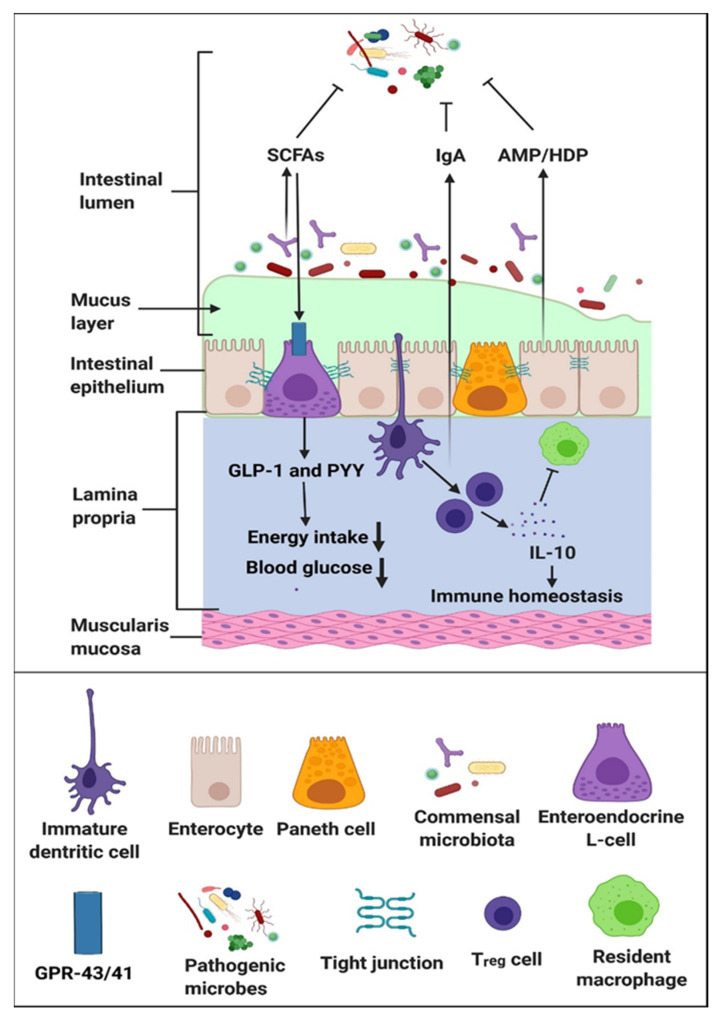Figure 2.
Fecal microbiota transplant restores intestinal microbial composition to modulate the adaptive immune responses, re-establish intestinal microbial homeostasis, and alter the host metabolism. Short chain fatty acids such as butyrate and propionate interact with G-protein coupled receptors GPR-43/41 on L cells to produce glucagon-like peptide 1 (GLP-1) and peptide YY (PYY), which contributes to reducing food intake and improving glucose metabolism [17].

